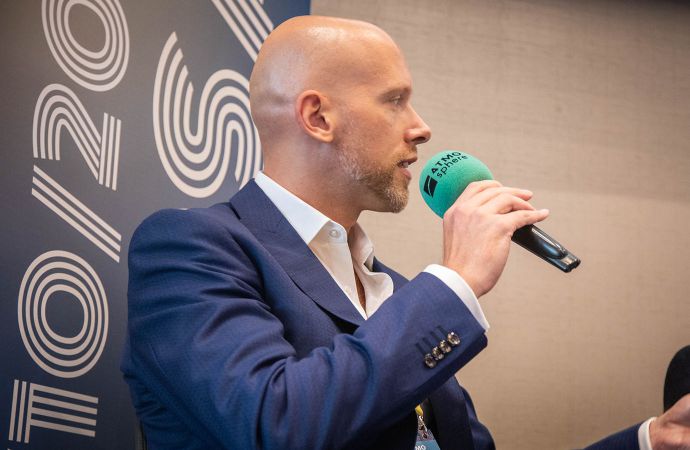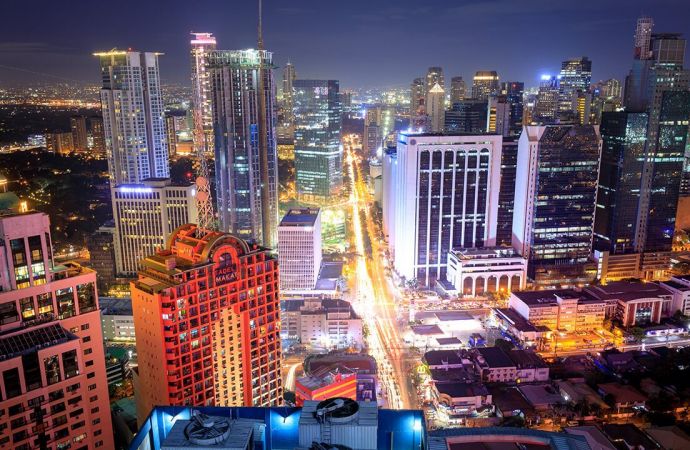A UNIDO-led three-year initiative, which aims to bring energy-efficient refrigeration to the country, is seeking industry contributions for an innovation hub and demonstration projects.

Jan Dusek, shecco
One of the most pressing issues in developing countries is a faulty food cold chain, which results in massive food waste and underserved communities.
To address that problem in the Philippines, the United Nations Industrial Development Organization (UNIDO), together with the Department of Environment and Natural Resources of the Philippines (DENR), are spearheading a new initiative aimed at applying environmentally friendly, energy efficient refrigeration throughout the cold chain – from farms to packing houses to cold-storage warehouses and finally stores – while advancing food safety and security.
The three-year project, which started implementation in October, is called the “Global Partnership for improving the Food Cold Chain in the Philippines.”It is funded by US$2 million from the Global Environment Facility (GEF), with US$25 million in co-financing (in-kind, grants and loans) contributed by other organizations. UNIDO is the implementing agency, working with the Department of Environment and Natural Resources of the Philippines (DENR), and shecco (publisher of Accelerate Magazine) as one of the key executing partners.
For the Philippines project UNIDO aims to “establish a global partnership” including national and international private-sector companies and financing institutions, said Franziska Menten, Project Coordinator, Department of the Environment, UNIDO, who spoke about the project on October 16 at ATMOsphere Europe in Warsaw, Poland, organized by shecco.
The project plans in its first year to establish a Cold Chain Innovation (CCI) Hub (location to be determined by early December). This will be an “ecosystem of technical resources, research, knowledge sharing and stakeholder collaboration” supporting technology exhibitions and training, for which UNIDO is seeking industry contributions, said Menten.
In addition, UNIDO is calling for proposals from industry for business-case demonstration projects using low-GWP, energy efficient technology, supported by US$800,000 in grants and incentives; the group is also seeking potential investment projects, financed by US$22 million in loans from the Asia Development Bank (ADB) and local development banks.
“We have over US$20 million to invest in the food cold chain in the Philippines, and the project aims to prepare companies to access all funding for their green projects,” said Menten.
The project’s first official Launching Ceremony & Technology Workshop is scheduled for early next year. A website and newsletter are under development, and a national project team is being recruited. Also planned is a technology and stakeholder workshop in the second quarter of 2020 and at ATMOsphere Asia in 2020, as well as a report on the cold chain in the Philippines and the development of monitoring methodology for energy-efficiency and CO2e-reduction potential.
Jan Dusek, COO and Head of APAC, shecco, who spoke after Menten at ATMOsphere Europe, described the CCI Hub as “an involvement opportunity for industry.” For training, industry stakeholders can share “expertise on cold chain applications with natural refrigerants,” he said. Industry is also asked to donate natural refriger- ant-based technologies such as smaller plug-in and remote systems while offering a “time-limited rental of larger systems.” In addition, UNIDO is seeking “hands-on experience with the latest environmen- tally friendly refrigerant technologies” for operation and maintenance at the CCI Hub,” said Dusek.
“It is the industry’s responsibility to help Southeast Asia move away from R22,” he said. To date, the region has made some progress with natural refriger- ants, with thousands of propane (R290) plug-in cabinets installed, including a Royal Duty Free store in Manila using only R290 cabinets and a water-loop system. (See “Royal Duty Free Is First in the Philippines With All-R290 Store,” Accelerate Magazine, June 2019.) Training on hydrocarbons and CO2 systems have commenced in Southeast Asia, while at least five ammonia/CO2 cascade systems have been installed in the Philippines and Malaysia, he said.
Three main components
The three main components of the project, said Menten, include: policy and regulatory assessment, awareness and capacity building, and technology transfer.
On the policy side, this means the adoption of regulatory, legal and voluntary measures to support the use of low-carbon and energy-efficient technology in the cold chain, Menten said. The project will also look at developing national standards for minimum energy efficiency and flammable refrigerants.
The project also seeks to foster awareness, knowledge and capacity in the use of energy-efficient, climate-friendly and safe refrigeration alternatives in the food cold chain. This includes monitoring and analyzing the efficiency and carbon impact of each link in the cold chain and identifying high-potential areas for improvement. It also includes education and training for 50 local engineers, as well as systems suppliers and end users, on cold chain technology.
For technology transfer, new technologies will be made available in the country and partnerships established between key stakeholders.
This article originally appeared in the November-December 2019 issue of Accelerate Magazine.
Related stories




